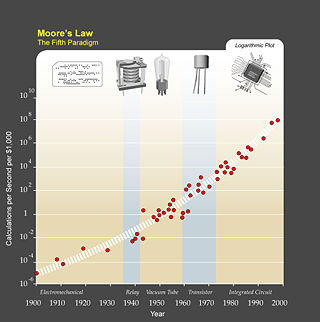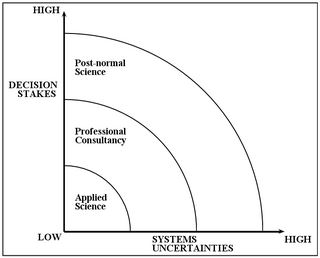Related Research Articles
The Project for the New American Century (PNAC) was a neoconservative think tank based in Washington, D.C., that focused on United States foreign policy. It was established as a non-profit educational organization in 1997, and founded by William Kristol and Robert Kagan. PNAC's stated goal was "to promote American global leadership". The organization stated that "American leadership is good both for America and for the world", and sought to build support for "a Reaganite policy of military strength and moral clarity".

John Ricardo Irfan "Juan" Cole is an American academic and commentator on the modern Middle East and South Asia. He is Richard P. Mitchell Collegiate Professor of History at the University of Michigan. Since 2002, he has written a weblog, Informed Comment (juancole.com).
Talvin Singh OBE is an English musician, producer, and composer. A tabla player, he is known for creating an innovative fusion of Indian classical music with drum and bass. Singh is generally considered involved with an electronica subgenre called Asian Underground, and more recently as Indian and/or Asian electronica.

Ziauddin Sardar is a British-Pakistani scholar, award-winning writer, cultural critic and public intellectual who specialises in Muslim thought, the future of Islam, futurology and science and cultural relations. He wrote or edited more than 50 books Prospect magazine named him as one of Britain's top 100 public intellectuals and The Independent newspaper called him: 'Britain's own Muslim polymath'.

Futures studies, futures research, futurism research, futurism, or futurology is the systematic, interdisciplinary and holistic study of social/technological advancement, and other environmental trends; often for the purpose of exploring how people will live and work in the future. Predictive techniques, such as forecasting, can be applied, but contemporary futures studies scholars emphasize the importance of systematically exploring alternatives. In general, it can be considered as a branch of the social sciences and an extension to the field of history. Futures studies seeks to understand what is likely to continue and what could plausibly change. Part of the discipline thus seeks a systematic and pattern-based understanding of past and present, and to explore the possibility of future events and trends.

Post-normal science (PNS) was developed in the 1990s by Silvio Funtowicz and Jerome R. Ravetz. It is a problem-solving strategy appropriate when "facts [are] uncertain, values in dispute, stakes high and decisions urgent", conditions often present in policy-relevant research. In those situations, PNS recommends suspending temporarily the traditional scientific ideal of truth, concentrating on quality as assessed by internal and extended peer communities.

Kishore Mahbubani is a Singaporean diplomat and geopolitical consultant who served as Singapore Permanent Representative to the United Nations between 1984 and 1989, and again between 1998 and 2004, and President of the United Nations Security Council between 2001 and 2002.

Michael M. Crow is an American professor, science and technology policy scholar and expert in university design. He is the 16th and current president of Arizona State University, having succeeded Lattie F. Coor on July 1, 2002. He is credited with designing the New American University model, which demonstrates simultaneous educational access, comprehensive excellence and social impact.
Tariq Modood, is a British Pakistani Professor of Sociology, Politics, and Public Policy at the University of Bristol. Modood is the founding director of the Centre for the Study of Ethnicity and Citizenship.

Ashis Nandy is an Indian political psychologist, social theorist, futurist and critic. A trained clinical psychologist, Nandy has provided theoretical critiques of European colonialism, development, modernity, secularism, Hindutva, science, technology, nuclearism, cosmopolitanism, and utopia. He has conceptualised cosmopolitanism and critical traditionalism. Nandy has written an historical profile of India's commercial cinema as well as critiques of state and violence.

Hindkowans, also known as the Hindki, is a contemporary designation for speakers of Indo-Aryan languages who live among the neighbouring Pashtuns, particularly the speakers of various Hindko dialects of Western Punjabi (Lahnda). The origins of the term refer merely to the speakers of Indo-Aryan languages rather than to any particular ethnic group. The term is not only applied to several forms of "Northern Lahnda" but also to the Saraiki dialects of the districts of Dera Ghazi Khan, Mianwali, and Dera Ismail Khan, which border the southern Pashto-speaking areas.

Jerome (Jerry) Ravetz is a philosopher of science. He is best known for his books analysing scientific knowledge from a social and ethical perspective, focussing on issues of quality. He is the co-author of the NUSAP notational system and of Post-normal science. He is currently an Associate Fellow at the Institute for Science, Innovation and Society, University of Oxford.

Bruce O. Riedel is an American expert on U.S. security, the Middle East, South Asia, and counter-terrorism. He is currently a nonresident senior fellow in the Center for Middle East Policy at the Brookings Institution and an instructor at Washington College in Chestertown, Maryland.

Andrew Jordan Cole is an American professional baseball pitcher who is a free agent. He has played in Major League Baseball (MLB) for the Washington Nationals, New York Yankees, Cleveland Indians, and Toronto Blue Jays, and in Nippon Professional Baseball (NPB) for the Tokyo Yakult Swallows.
Kent E. Calder was the interim dean of the Johns Hopkins School of Advanced International Studies (SAIS), serves as the director of the Edwin O. Reischauer Center for East Asian Studies, and is also the Edwin O. Reischauer Professor of East Asian Studies at SAIS. Calder previously served as the vice dean for faculty affairs and international research cooperation at SAIS.
Charles Louis Glaser is a scholar of international relations theory, known for his work on defensive realism, as well as nuclear strategy and U.S. policy toward China. He is a Senior Fellow in the Security Studies Program at MIT and an Emeritus Professor of Political Science and International Affairs at George Washington. He was the founding director of the Institute for Security and Conflict Studies at the George Washington University's Elliott School of International Affairs, as well as a professor of political science and international affairs. His best-known book, Rational Theory of International Politics: The Logic of Competition and Cooperation received an Honorable Mention for 2011 Best Book from the International Security Studies Section of the International Studies Association.

Marc Luyckx Ghisi was born 20 April 1942 in Louvain, Belgium. He lives with his wife Isabelle near Brussels. Initially, he studied mathematics, philosophy and theology (Ph.D.) and became a Catholic priest. He presented a doctorate in Rome, in Russian and Greek theology, on Nikolai Berdyaev's early writings in Russian, since his discovery of Marxism until his conversion to orthodoxy" . After his marriage, he was for ten years (1990-1999), member of the Forward Studies Unit of the European Commission, created by Jacques Delors, where he focused on the meaning of European integration and created the programme The soul of Europe. He had the opportunity to travel a lot and meet worldwide government officials and advisors in Europe, the U.S., China, Japan, or in India. Some were aware of the shift of civilization in which we are engaged globally, but these visionaries were a minority.

Netaji Subhas University of Technology (NSUT), formerly Netaji Subhas Institute of Technology (NSIT) is a state university located in Dwarka, Delhi, India. In 2018, the institute was granted university status, changing its name to Netaji Subhas University of Technology (NSUT).

Richard Appignanesi is a Canadian writer and editor. He was the originating editor of the internationally successful illustrated For Beginners book series, as well as the author of several of the series' texts. He is a founding publisher and editor of Icon Books. He was founding editor of the Manga Shakespeare series. He is a former executive editor of the journal Third Text, and reviews editor of the policy studies journal Futures.

The United States Army Futures Command (AFC) is a United States Army command that runs modernization projects. It is headquartered in Austin, Texas.
References
- ↑ Sardar, Ziauddin (June 2010). "Welcome to postnormal times". Futures. 42 (5): 435–444. doi:10.1016/j.futures.2009.11.028. S2CID 14196453.
- ↑ Ziauddin Sardar & John A. Sweeney, "The Three Tomorrows of Postnormal Times", Futures75 (2016) 1-13.
- John A. Sweeney, "Signs of postnormal times", East-West Affairs1, no. 3/4 (2013). - ↑ Rakesh Kapoor, "Is there a postnormal time? From the illusion of normality to the design for a new normality", Futures43 (2011) 216-220.
- ↑ Sam Cole, "Alliterative logic: A theory of postnormal times", Futures43 (2011) 209-215.
- ↑ Jay E. Gary, "Toward a new macrohistory: An extension to Sardar’s 'postnormal times'", Futures43 (2011) 48-51.
- ↑ Peter Allen and Liz Varga, "Modelling sustainable energy futures for the UK", Futures57 (2014) 28-40.